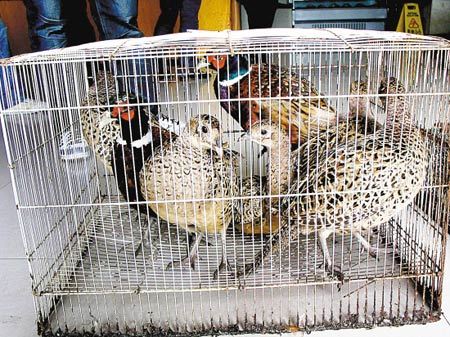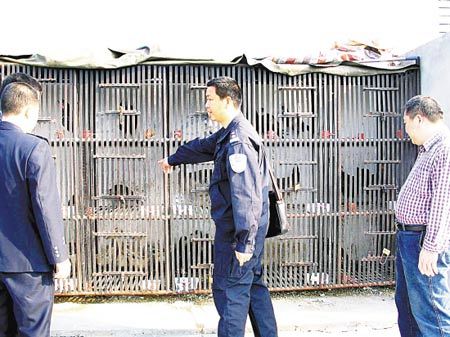The Wenzhou forestry department initiated a campaign to crack down on illegal hunting and dealing in wild game in late April.

Several caged pheasants were put in front of a suburban restaurant in Wenzhou to attract customers. [Photo:chinanews.com.cn]
However, some suburban restaurants in the city still provide game meat to customers, albeit in a stealthier way.
Qiangjiang Evening News reported that some restaurants run by local farmers even sell bharal, an endangered sheep protected at the state level.
Most of the restaurants, usually transformed farmhouses, make money by providing accommodations for city people who came to the suburbs on holidays. They either hunt the animals themselves or import game from dealers in neighboring provinces.
The farmhouses recommend ordinary or small-game animals to first-time customers, while to their regular patrons, they recommend specialties, rare wild animals such as pangolin and black swan, the newspaper said.
Some hunters sell wild game on the highway connecting the city and the suburbs, and even accept booking orders for certain species.
Although the campaign has detained several illegal dealers, the crucial actions lie on the customers' side, Ding Liangdong, an expert from the provincial wild animal and plant conservation center of Zhejiang, said.
"Many people have the wrong idea that eating wild animals like hedgehog and turtle dove ,which are excluded from the nation's protection list, is no big deal," Zhang said.
Refusing game meat is not enough, the expert suggested. People must unite in protecting wild animals, so anyone who spots illegal hunting or trading should inform the forestry department or the police, Zhang said.

Wild game are put into cages at a restaurant in Wenzhou to attract customers. [Photo:chinanews.com.cn]
(CRI May 6, 2008)